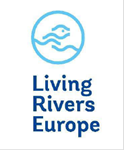Living Rivers Europe's Event

Freshwater fishes in the context of the EU Biodiversity Strategy - 24 & 25 November 2022 - Report
On 24 and 25 November, the European Commission and the Living Rivers Europe coalition organised a seminar in the frame of the EU Biogeographical seminar process.
The event gathered national and European freshwater fish experts, conservation NGOs and stakeholder groups, as well as national or regional representatives in charge of preparing the national pledges for protected areas and conservation status improvement of habitats and species. It aimed at highlighting opportunities for improving the protection and management of Europe’s freshwater fish species, including in terms of transnational cooperation, covering both the species listed in the annexes of the Habitats Directive, and IUCN Red listed species.
You can find here the report of this event.
Final agenda of the event: click here
Presentations:
PLENARY SESSION
Sibylle Schroer (Scientific Coordinator Sustainability Research, Leibniz Inst. of Freshwater Ecology and Inland Fisheries):
Setting the scene: rivers & fish // Legal framework for the protection of biodiversity in freshwater systems: Germany as an exampleFrank Vassen, (DG- ENV D3): EU Biodiversity Strategy for 2030 targets and the pledge and review process
Prof. Carlos Garcia-De Leaniz (Prof. of Aquatic BioSciences & Director of the Centre for Sustainable Aquatic Research (CSAR), Swansea University): Status and trends of rivers, dams, and river continuity
Dr. Niels Jepsen (DTU-Aqua/ DK): The Grayling as an example species: pressures affecting Grayling populations in Europe
Jörg Freyhof (IUCN Freshwater Fish Species Specialist Group): Status and trends, IUCN and Habitats Directive data on freshwater fishes, the red list for freshwater fishes, and what should the protectede area target focus on?
Prof. Dr. Carola Winkelmann (Univ. Koblenz-Landau/ DE): The importance of healthy fish stocks for the ecological quality of rivers
PARALLEL SESSION A
Tobias Schäfer (WWF Germany):
The need for strict site protection in the context of freshwater ecosystems
PARALLEL SESSION B
Jacco van Rijssel, Wageningen Marine Research/Naturalis:
Research, trends and fisheries impact on Annex V species in the Netherlands
Dr. Niels Jepsen (DTU-Aqua/ DK): Recreational freshwater fishing and conservation of Salmon and Grayling: the Danish example
PARALLEL SESSION C
Herman Wanningen, (World Fish Migration Foundation): Dam removal to restore connectivity
Peter Gammeltoft (Danube Sturgeon Task Force): Migration Corridors for Sturgeons - Breaking the Silos
Peter Philipsen, Nature at Work (Rijkswaterstaat NL) : The GIS based National Fish roadmap, a road network to help fish migrate (and navigate) highly fragmented and densely populated areas
Sibylle Schroer, (Sustainability Research, Leibniz Institute on Freshwater ecology and Inland Fisheries) Fish mortality at hydropower plants
PARALLEL SESSION D
Lynne Barratt (NEEMO monitor/LIFE program): Restoration measures and overview of LIFE projects targeting freshwater fish species
Mentimeter:
EU Biodiversity Strategy 2030 targets, Fish and freshwater habitats
About the Living Rivers Europe Coalition:
Together with the European Environmental Bureau, the European Rivers Network, The Nature Conservancy, Wetlands International and WWF, the coalition represents a movement of over 40 million European citizens fighting for the defence of biodiversity, while freshwater species populations have declined by 84% globally since the 1970s.
A first pillarto protect freshwater species is to ensure that they can live in a healthy aquatic environment in the first place. However, one can only draw dire conclusions from the failure to implement the Water Framework Directive, when only 40% of Europe's waters are in good environmental condition, far short of the 100% target. Our purpose is to maintain the ambitious Water Framework Directive standards and to reinforce the policies implemented to achieve them.
A second pillar is to allow aquatic species, especially migratory species, to live their lives by being able to move freely in rivers without barrier. This is why the coalition also supports legally binding restoration targets in the upcoming EU Nature Restoration Law, as a vital condition to advance the restoration of freshwater ecosystems and reverse the steep decline of freshwater biodiversity.
Only by achieving these two targets can we bring our rivers back to life.